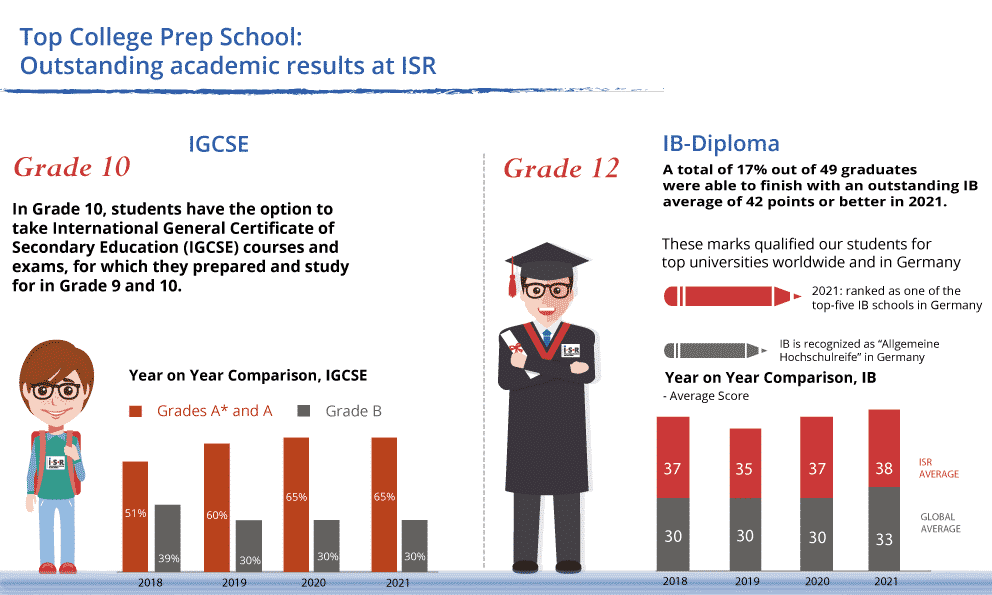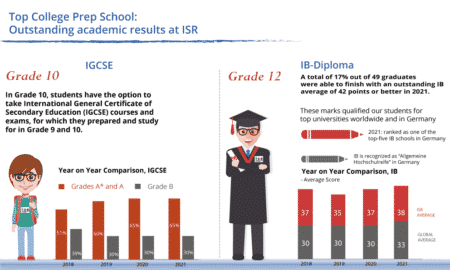
IB Certificates vs Diploma: Meaning & Key Differences
IB Certificates vs Diploma – What is an IB Diploma?
What is an IB Diploma? The International Baccalaureate (IB) Diploma is a globally recognized academic qualification that demonstrates a student’s readiness for university-level study. Unlike a simple certificate, the IB Diploma is a comprehensive program that goes beyond individual course completion—it’s a challenging and holistic learning journey.
To earn the IB Diploma, a student must complete six different IB subjects across various disciplines. These subjects include a mix of Higher Level (HL) and Standard Level (SL) courses, along with three mandatory core components:
-
Theory of Knowledge (TOK) – a two-semester course focused on critical thinking.
-
Extended Essay (EE) – a 4,000-word research paper on a topic of choice.
-
CAS (Creativity, Activity, Service) – a set of extracurricular activities that promote personal and community development.
Together, these elements make the IB Diploma one of the most rigorous high school programs worldwide.
IB Diploma and IB Certificates Difference

Although both programs are rigorous, the IB Diploma is more rigorous and reflects a student’s strong academic abilities and willingness to pursue special challenges. To earn an IB diploma, a student must earn 24 points, including 12 in Higher Level subjects and nine in Standard Level subjects. Unlike a certificate, an IB diploma is worth a lot more than a Certificate. Despite the difference between the two, the IB program is highly regarded for its ability to prepare students for post-secondary success.
The IB diploma is more than a collection of courses—it’s a comprehensive learning journey. In addition to passing the exams, students must complete core components that promote independent thinking and community engagement. The Extended Essay encourages deep academic research, the Theory of Knowledge course strengthens critical thinking skills, and CAS activities build social and emotional growth. These requirements make the diploma more demanding—but also more rewarding.
The IB Diploma offers students the flexibility to retake all six academic subjects up to three times
However, the IB certificate does not allow students to retake the same subjects more than three times. In addition, the Diploma does not require any additional credits for the courses, which means it’s not a viable option for people with limited time or money. If you are considering enrolling in the IB diploma program, you should know that there are many reasons to do so.
An IB Diploma isn’t as easy as it seems. While an IB Certificate is only earned after taking six IB courses, an IB Diploma is earned by completing all six. In addition, a student must also take three additional courses known as “Core” to earn the diploma. The difference between an IB Certificate and an IB Diploma isn’t as big as it may seem. The difference between a diploma and a certificate depends on the school a student attends and how they complete the course.
One of the major distinctions between the diploma and certificate is how universities perceive them. While both are respected, the diploma often holds more weight in competitive admissions. Many top universities offer credit, advanced placement, or even scholarships to students who hold the full IB diploma. This recognition can offer a significant head start in higher education, especially for students applying abroad.
The IB diploma more highly regarded by most universities. Graduates of the IB diploma programme are accepted at over 3,300 institutions of higher education in more than 90 countries. Some of these universities even have special programs that reward those with the IB diploma. A lot of universities recognize the IB during the application process. If you’re looking for a job or a career, an IB is a good choice.
The IB diploma has some advantages over its predecessor
The latter not credit based. In contrast, the IB diploma is not a certificate. In addition, it doesn’t have any exam requirements. Its only requirement is to fulfill its credit-based requirements. The difference between an IB certificate and a diploma is in the details. For example, a Diploma does not have a credit requirement, whereas a certificate doesn’t.
IB diploma students have greater flexibility, which is helpful when choosing a university. The IB certificate does not have the same credit requirements as an IB diploma. In addition, the IB certificate has fewer credit requirements than an A-level. Aside from the credit requirements, the IB certificate is more flexible. It also has more coursework, which is beneficial if you’re planning on studying abroad.
While the IB diploma requires students to take three upper-level courses, it does not have any CAS or EE. The IB diploma has a more comprehensive curriculum and is suitable for those with a hectic schedule. Both certificates awarded for the same course, despite having different credit requirements. This is a big plus for the IB certificate, but it can be challenging for those who don’t like to work.
Conclusion: IB Certificates vs Diploma – Which One is Right for You?
In the debate of IB Certificates vs Diploma, the right choice depends on your goals, capacity, and future plans. If you want a full academic experience that includes personal development, critical thinking, and global recognition, the IB Diploma is the stronger option. But if you want to explore IB subjects without the extra workload, IB Certificates offer a solid middle ground.

